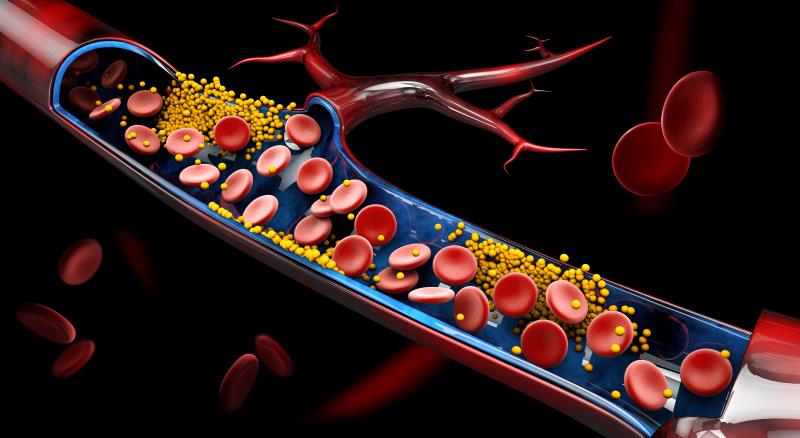
Treatment with the PCSK9* inhibitor alirocumab led to clinically meaningful reductions in low-density lipoprotein cholesterol (LDL-C) among adults with homozygous familial hypercholesterolaemia (HoFH), according to data from the ODYSSEY-HoFH** trial presented at the ACC.20/WCC Virtual meeting.
HoFH is a rare genetic condition characterized by markedly elevated LDL-C levels and very premature cardiovascular disease. [Eur Heart J 2014;35:2146-2157; J Clin Lipidol 2017;11:602-616; Atherosclerosis 2018;277:483-492] “It is very difficult to treat with conventional lipid-lowering therapy (LLT). Most patients do not respond well to therapy, [hence the need for] other treatments such as lipid apheresis,” said lead author Dr Dirk Blom from the University of Cape Town in Cape Town, South Africa.
“This trial is the largest randomized controlled interventional trial in adults with HoFH to date and offers important insights into the disease … Alirocumab is a potential new therapy that should be considered in appropriate patients with HoFH,” said Blom.
Sixty-nine patients on stable LLT (eg, statins, ezetimibe, lomitapide) and/or apheresis were randomized 2:1 to receive subcutaneous alirocumab 150 mg or placebo Q2W for 12 weeks. None were taking any other PCSK9 inhibitors. Mean baseline LDL-C levels were 295.0 and 259.6 mg/dL in the alirocumab and the placebo arms, respectively. [ACC.20/WCC Virtual, abstract 411-10]
At week 12, the least-squares (LS) mean difference in LDL-C percent change from baseline between groups was -35.6 percent (-26.9 percent [alirocumab] vs 8.6 percent [placebo]; p<0.0001).
“[The] treatment difference was seen as early as the first post-baseline assessment at week 4 and was maintained throughout the 12-week treatment period … [As] these patients had such a high baseline LDL-C, these findings translate to quite a significant absolute reduction in LDL-C,” said Blom.
A greater fraction of participants achieved ≥30- and ≥50-percent reductions in LDL-C with alirocumab vs placebo (57.1 percent vs 4.2 percent; odds ratio [OR], 36.5; p=0.001 [≥30 percent] and 26.7 percent vs 0 percent; OR, 17.7; p=0.0017 [≥50 percent]).
There were also substantial reductions in other atherogenic lipid parameters (ie, total cholesterol, apolipoprotein B, non-high-DL-C, and lipoprotein a) with alirocumab vs placebo (LS mean difference, -26.5, -29.8, -32.9, and -28.4 percent, respectively; p<0.0001 for all).
The incidence of treatment-emergent adverse events (TEAEs) was numerically lower with alirocumab vs placebo (44 percent vs 50 percent). Apart from one case of injection site reaction, no serious AEs nor discontinuations due to TEAEs were reported with alirocumab.
With the consistent LDL-C reductions including patients on apheresis, as well as the significant reductions in other harmful lipids, alirocumab is a worthwhile potential treatment for this patient subgroup, said Blom. “A lot of patients still require additional therapy because the LDL-C [level] is so high at baseline … The addition of alirocumab on top of maximally tolerated LLT helps patients get closer to their LDL-C goal,” he added.
Given the high cost and accessibility issues tied to apheresis and lomitapide, PCSK9 inhibitors should be the next step after statin therapy in this setting, commented discussant Dr Raul Santos from the University of Sao Paulo in Sao Paulo, Brazil. “[Alirocumab] has an advantage over apheresis and lomitapide [due to] better availability, good tolerability, and less [cost].”
Santos also underscored the importance of exploring the potential of alirocumab in a younger cohort. “It is very important to expand this treatment to a younger cohort [as] they have to start [treatment] very early … We need newer treatments … and we have to guarantee access [to alirocumab for young] HoFH patients because it can really make the difference.”